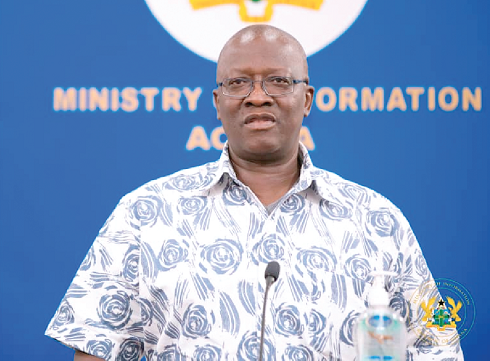
COVID-19 testing labs must produce accurate results — Prof. Ampofo
The Coordinator for the National Laboratory Network for COVID-19 Testing, Professor William Kwabena Ampofo, has said the network had taken a decision to ensure that “all laboratories produce an 80 per cent accuracy test and none of the tests should be false negative.”
In line with this, he explained the team had visited all the laboratories to assess and provide technical support on laboratory processes, skills of personnel, compliance with protocol and equipment for testing.
Dr Ampofo stated this when he made a presentation at the National Quality Assurance Programme for Covid-19 testing laboratories.
False Negative
He noted that “when you test for a pathogen, if it is positive, it is positive, but if you get a false negative result, that’s a problem for Covid-19. The implication is that people may be positive and be walking around with false negative results, infecting other people.”
This is to enforce adherence to safety and quality assurance protocols within COVID-19 testing laboratories as part of National Quality Assurance programme for PCR testing and guarantee the accuracy of Covid-19 test results irrespective of which accredited laboratory conducted the test.
The programme is being executed by the National Laboratory Network for COVID-19 Testing, the Food & Drugs Authority, the Health Facilities Regulatory Agency and with support from PharmAccess Foundation.
Samples
A Member of the National laboratory Network for Covid-19 Testing, Professor Richard Philips, who is also the Director of the Kumasi Centre for Collaborative Research (KCCR), said it had been noticed that some of the labs had issues with picking samples, pipetting and even how to handle their reagents among others and they were assisted to correct them.
He noted that although some of the labs had been operating for long, they still had challenges with data handling, adding that “the programme had to transfer expertise from some of the experienced labs to the relatively new ones, to raise their capabilities. Others had to be helped with the standard operating procedures. It’s been helpful.”
The Director General of the Ghana Health Service, Dr Patrick Kuma Aboagye, said the National Quality Assurance Programme was a key step in the fight against the pandemic which had claimed more than 650 lives in Ghana and affected more than 86,000 Ghanaians.
He reiterated that the service would “not hesitate to de-list laboratories that fail these quality control protocols because we want to ensure the highest standard of test results which would inform our responses.”
Score card
The Country Director of the PharmAccess Foundation, Dr Maxwell Antwi, was hopeful that the project would continue to support the transfer of expertise from some of the less-competitive laboratories to another.
He said the programme had generated a score card which was able to tell which lab was doing well and which ones were not and requiring support.”
Dr Antwi noted, “as new Covid-19 laboratories spring up, it is critical to ensure the quality control measures are in place to help assess the labs for licensing.”
For his part, the Ambassador of the Kingdom of The Netherlands, H.E. Ambassador Ron Strikker said the National Quality Assurance Programme (NQAP) for COVID-19 testing laboratories was designed to further strengthen and maintain the capacity of Ghanaian laboratories in the area of the accuracy of test results in all COVID-19 testing laboratories, as well as effective data management of test results.
